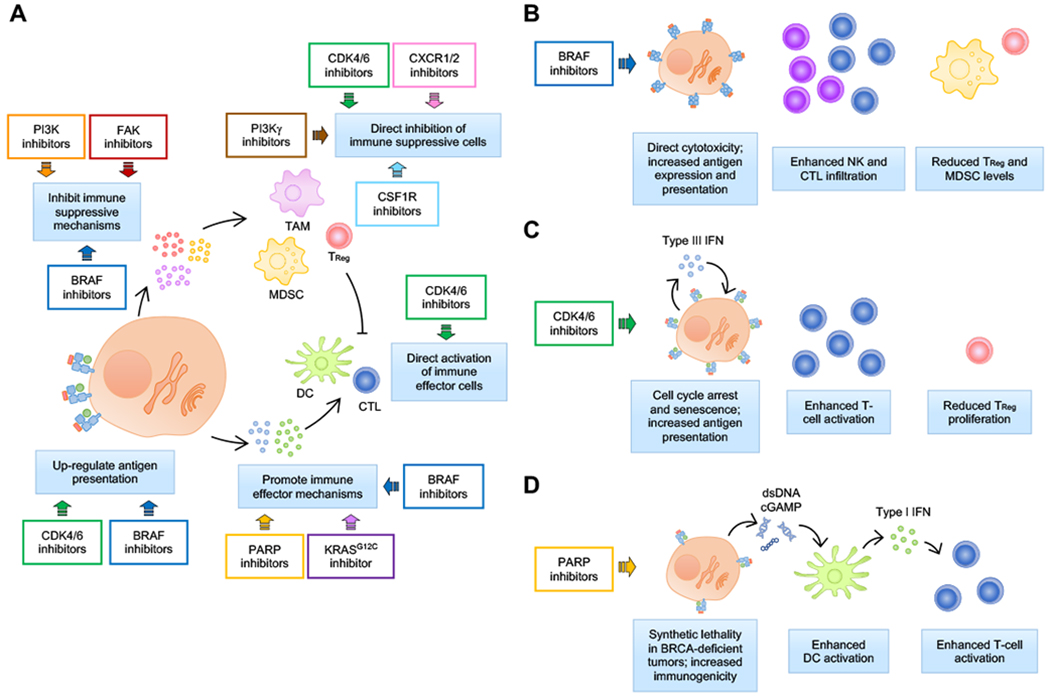Figure 4.

Immune modulation by small molecule targeted therapies. A, Targeted therapies have been shown to affect multiple aspects of cancer immunity, including inhibition of anti-inflammatory mechanisms and promotion of pro-inflammatory mechanisms, up-regulation of antigen presentation, and direct modulatory effects on immune cells. Some targeted agents have been designed to specifically target immune sub-populations. For example, PI3Kγ and CSFR1 inhibitors are used to deplete tumor-associated macrophages (TAMs), and CXCR1/2 inhibitors are used to inhibit myeloid-derived suppressor cells (MDSCs). Other drugs, such as BRAF, PI3K, FAK and KRASG12C inhibitors, were found to affect immune-related mechanisms in addition to their intended cytotoxic effect on tumor cells largely because oncogenic signaling from tumor cells modulates immune response. In the case of PARP inhibitors, enhanced immunogenicity seems to be a corollary of its primary effect on inducing irreparable DNA damage; however, engagement of a robust immune response is required for effective response. And in the case of CDK4/6 inhibitors, unexpected effects in tumor antigenicity as well as direct effects on immune suppressive and immune effector cells have been reported by independent research groups. B-D, Summary of immune modulatory effect of selected examples of targeted therapies currently under clinical investigation in combination with immune checkpoint blockade immunotherapy.
